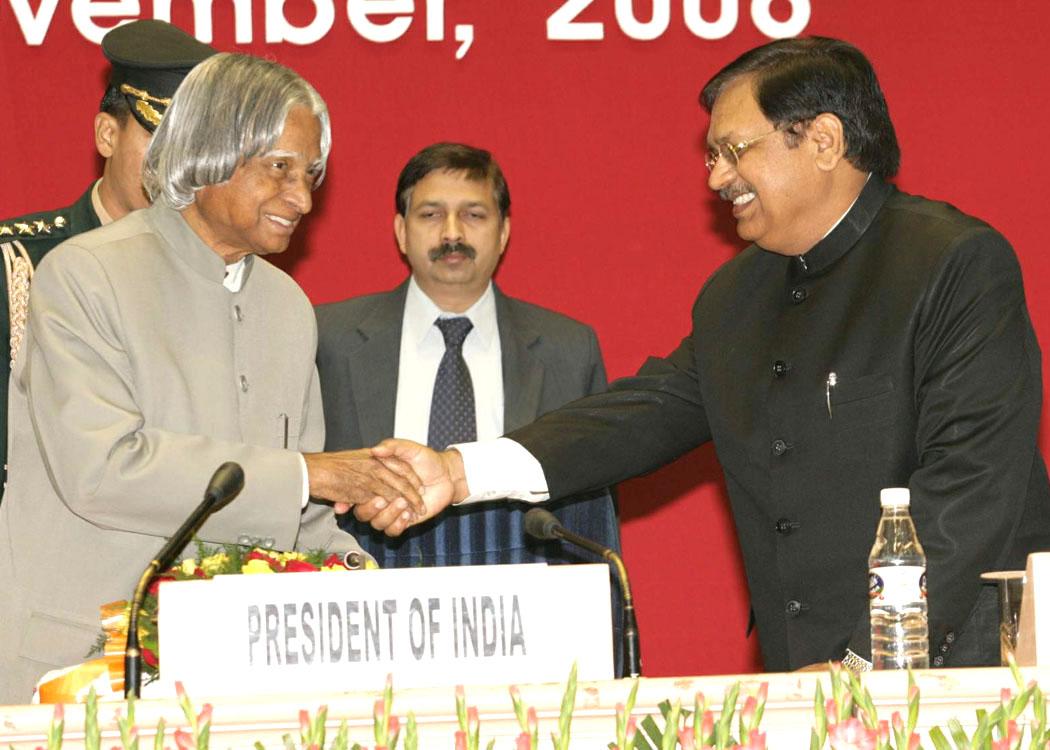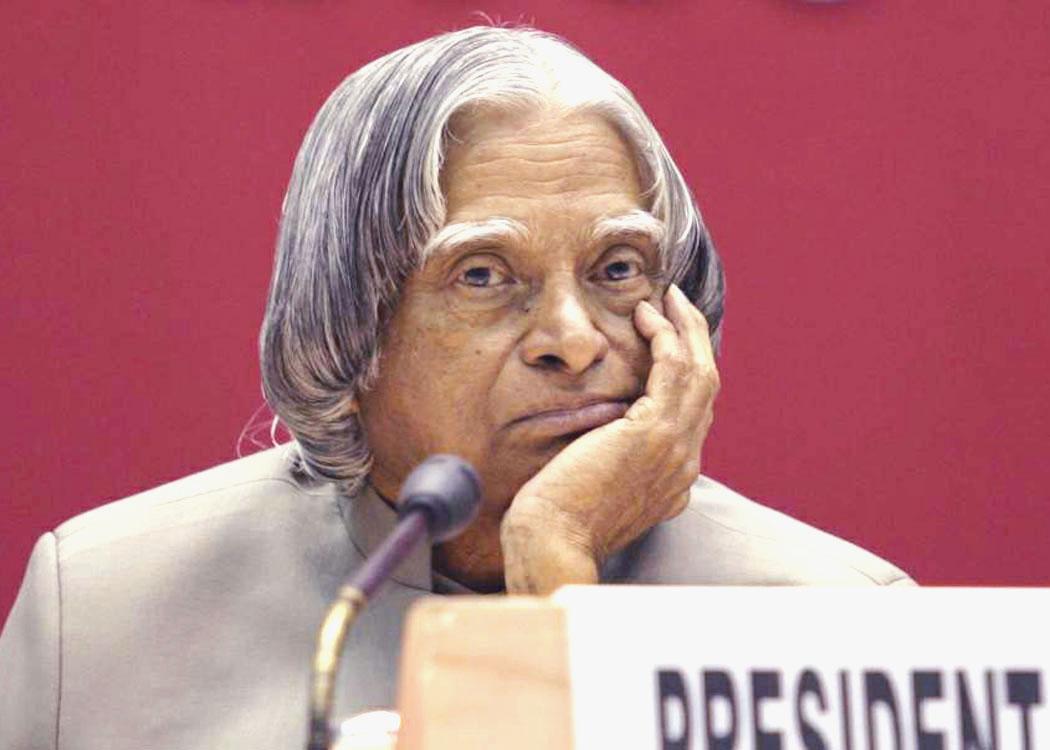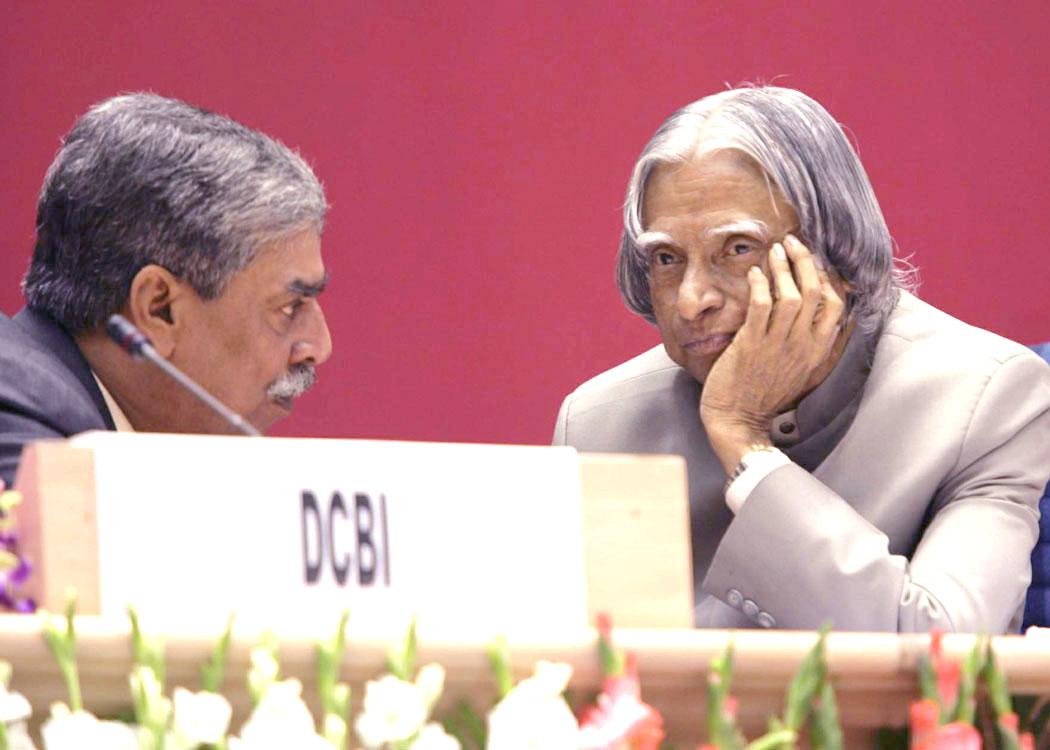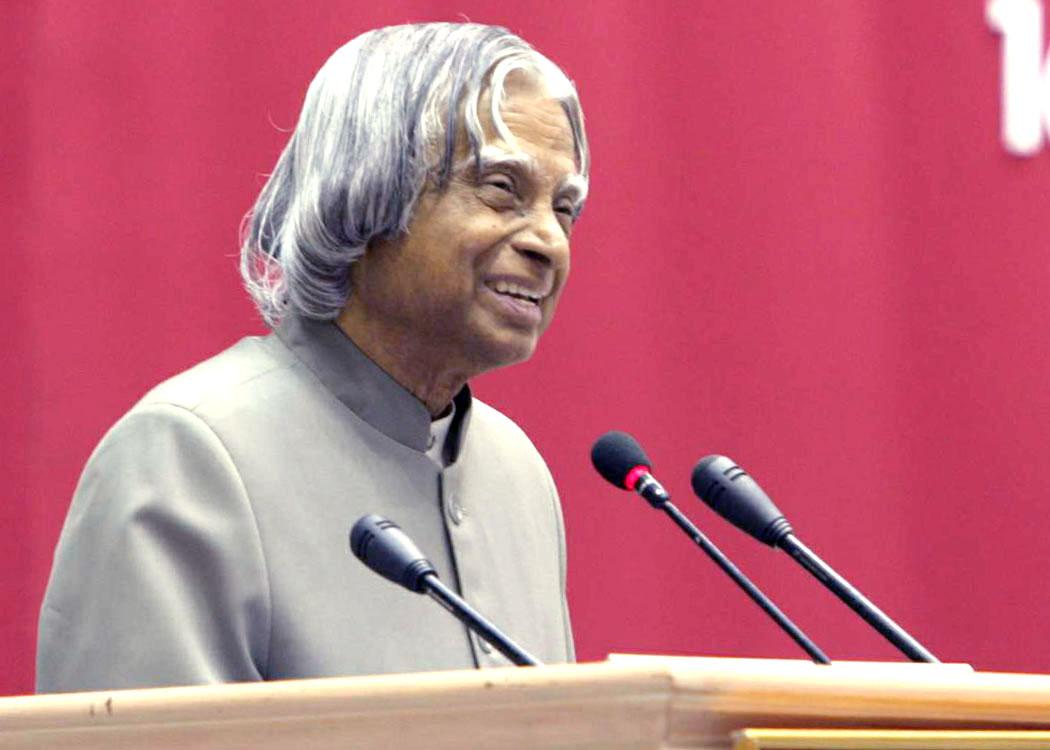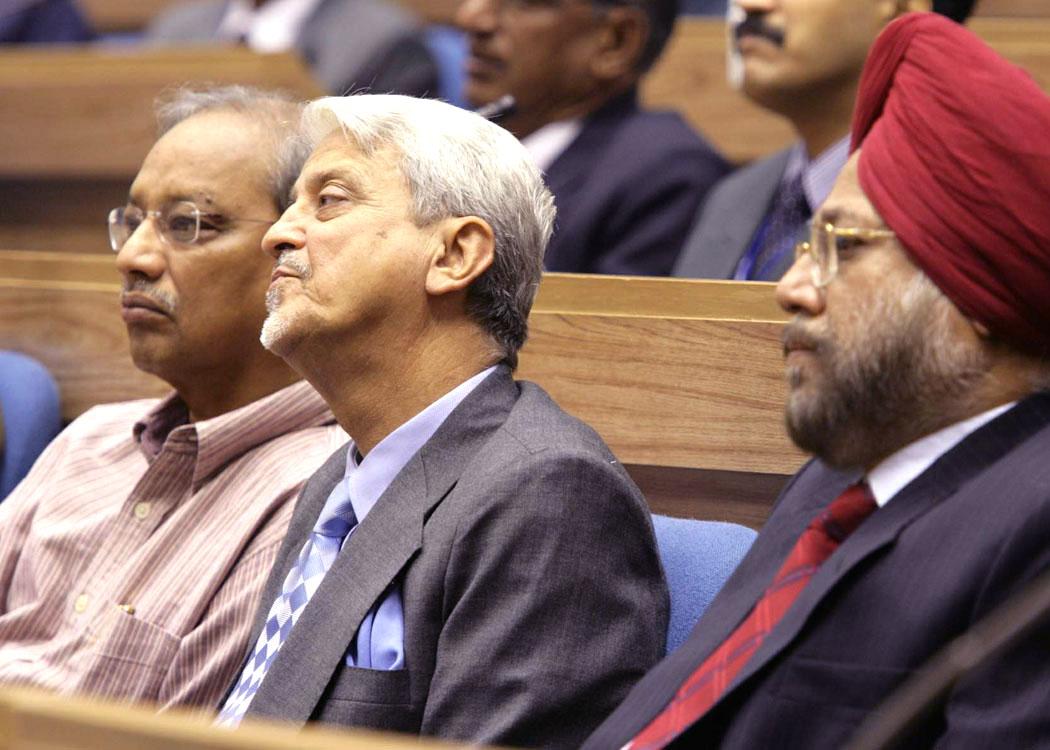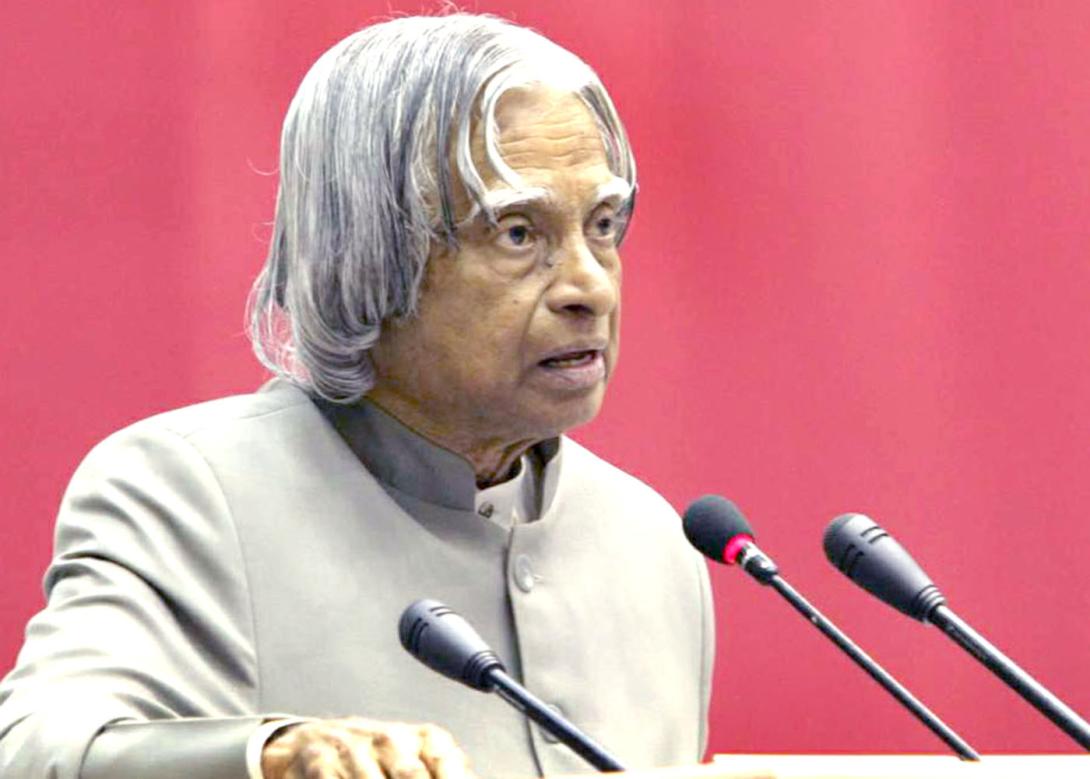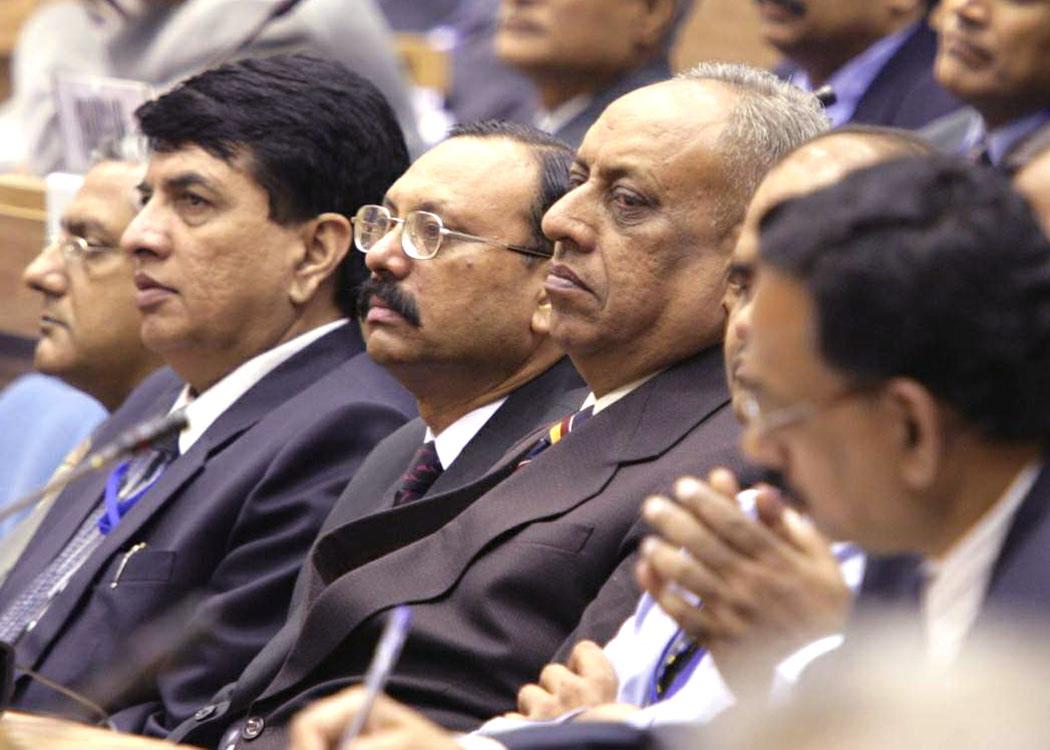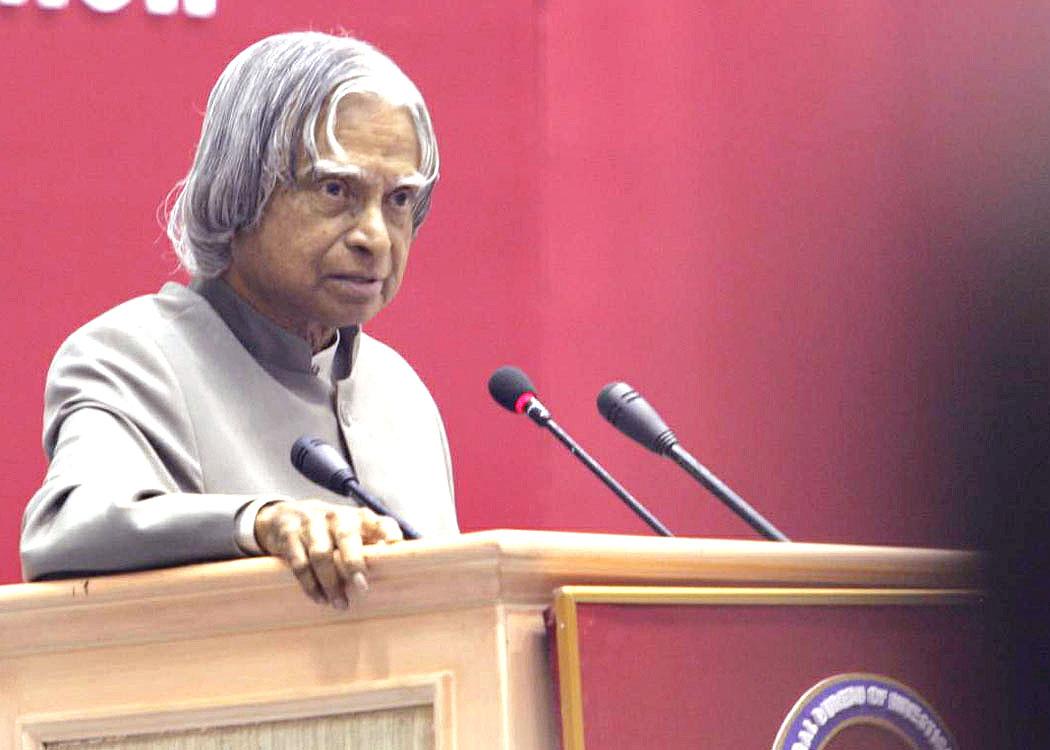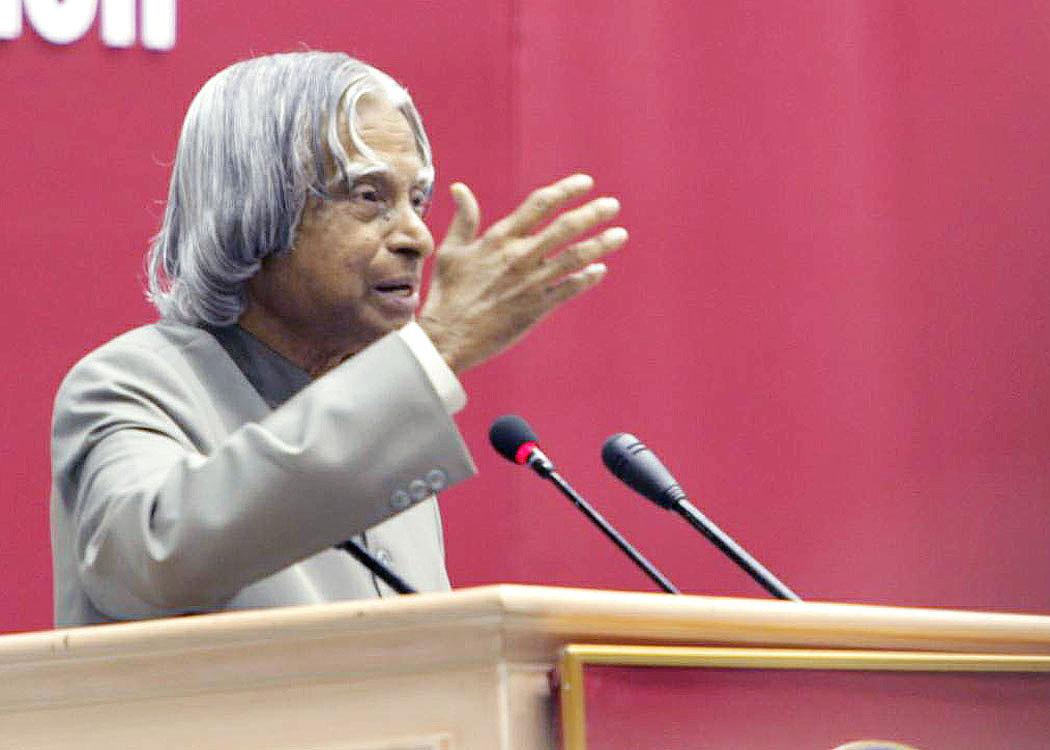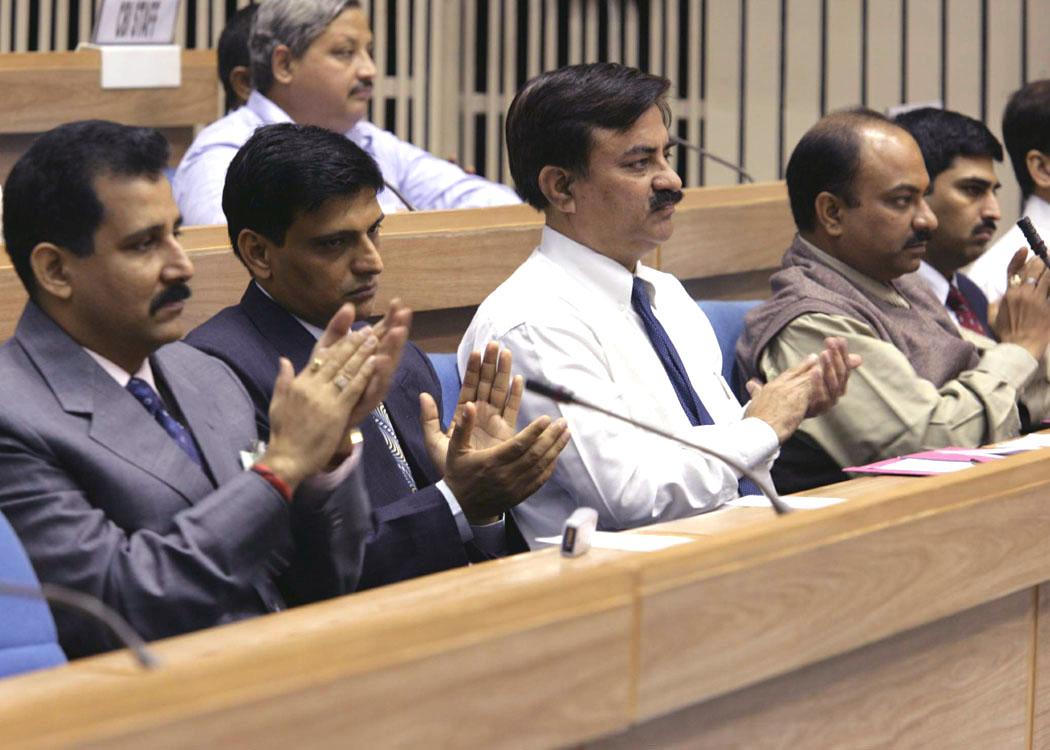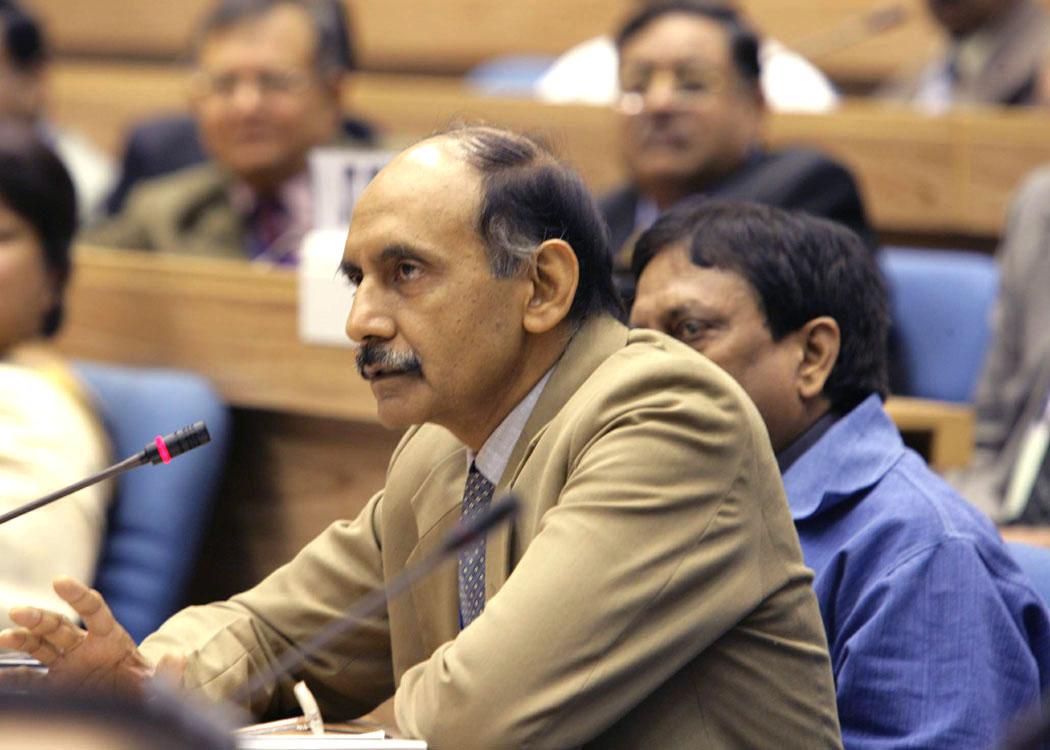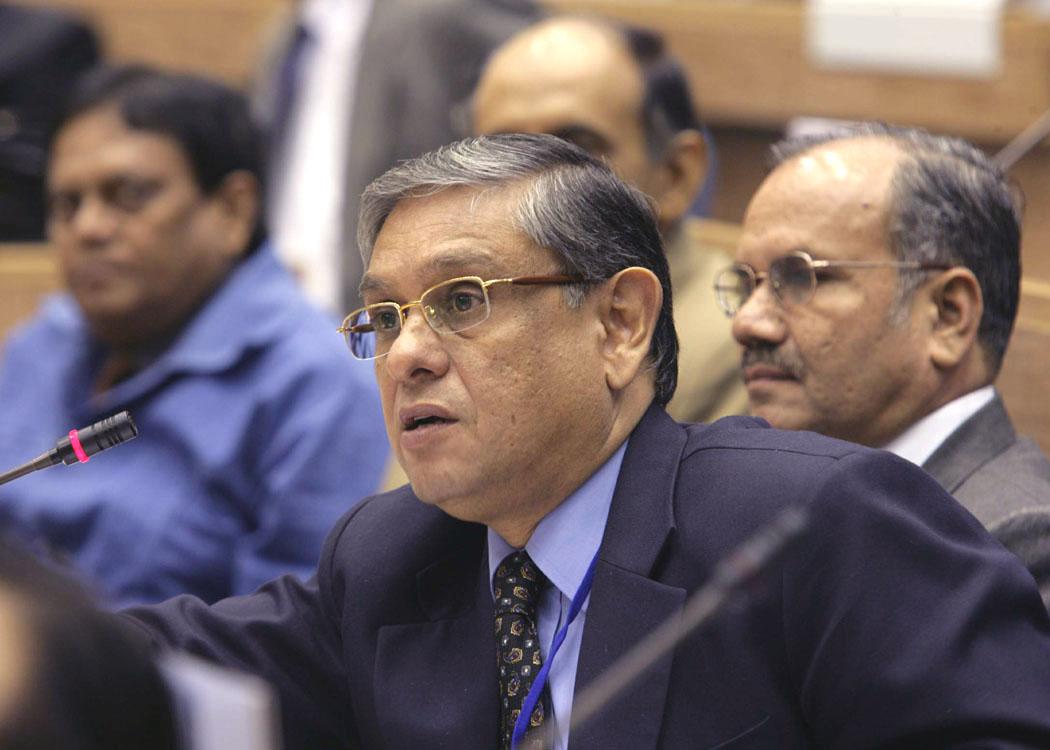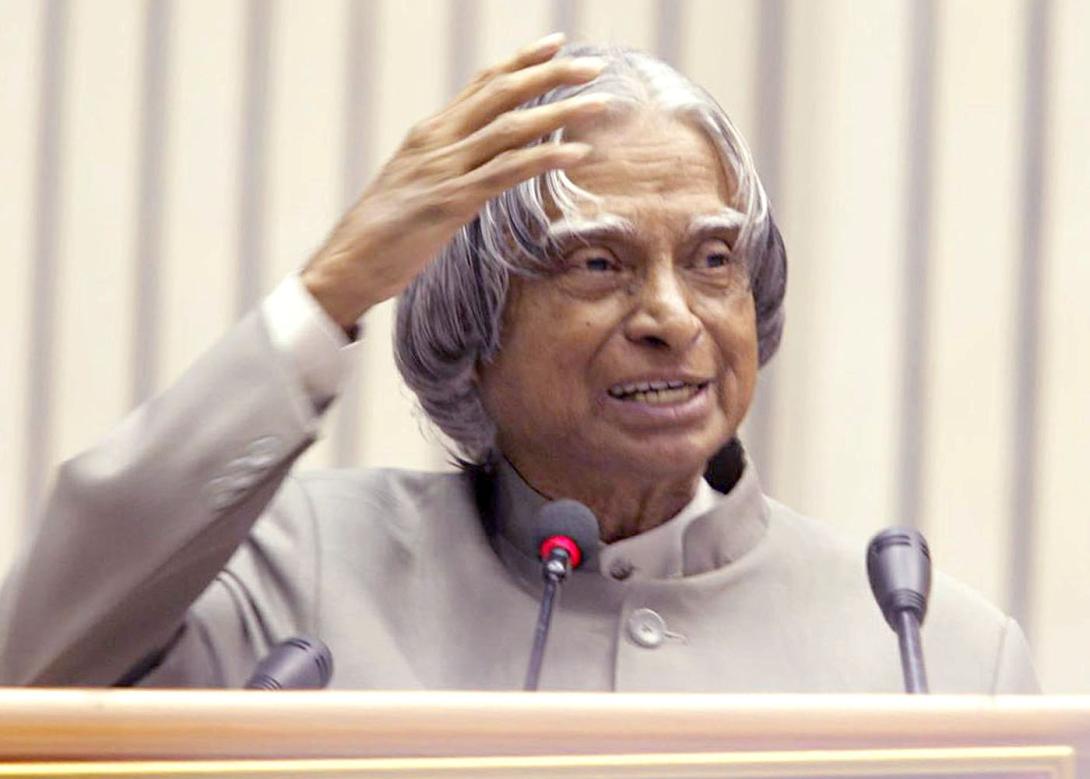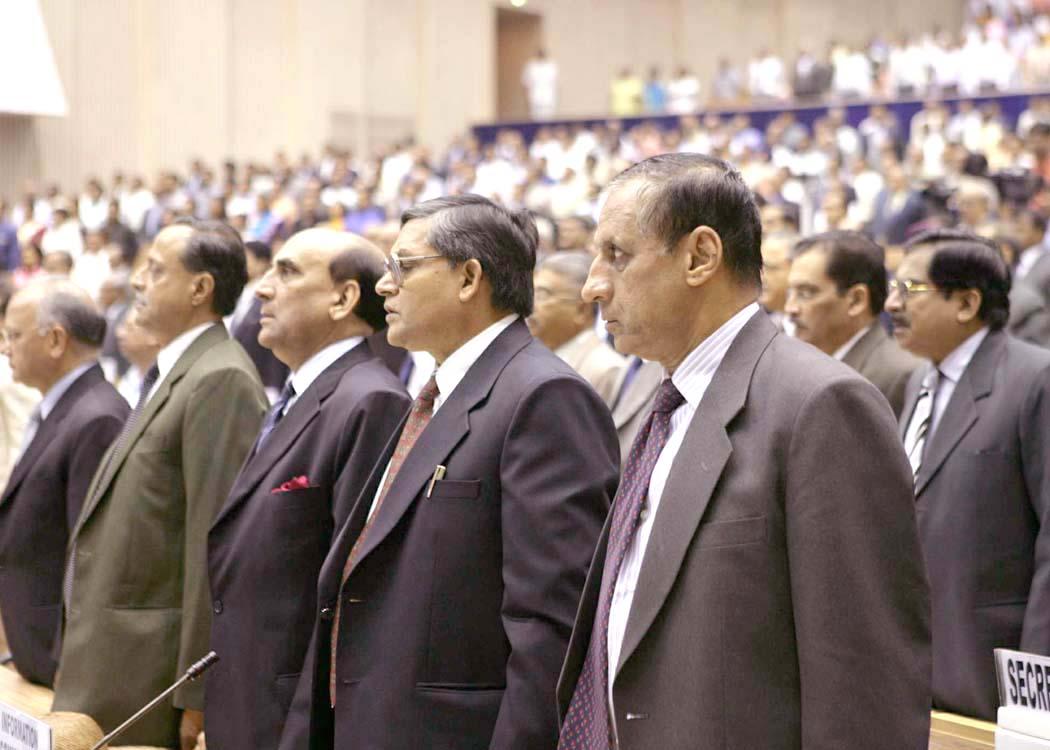Address at the Inauguration of Biennial Conference of Anti-corruption / Vigilance Bureaus of States, Ut and Officers of the Cbi,new Delhi
New Delhi : 16-11-2006
My nation is my life
"When there is harmony in the home
There is order in the nation.?
I have great pleasure in addressing all of you on the occasion of the Biennial Conference of the heads of Anti-corruption/Vigilance Bureaus of the States and UTs and also the officers of the CBI. My pleasure is all the more when I realize that I am addressing those who have been entrusted with the singular task of detecting and rooting out one of the most dreadful maladies afflicting our society, namely corruption. It should pain every citizen?s heart when he reads his country?s name included in the list of those blackened by the existence of this evil. Unfortunately, corruption has permeated all walks of life in our society and what is more disconcerting is the fact it does not seem to abate as years go by and worse still, to a large extent, it has been taken for granted as a fact of life. The society can progress only when it upholds nurtures and enriches eternal values in which honesty and integrity assume a primary position. When dishonesty and corruption cancerously eat out the life of the society.
Honesty, The best policy
Honesty is of course the best policy, but it is unfortunate that apparently many of us seem to seriously think that honesty is the best policy only if money is in it, as Mark Twain once jocularly said in his inimitable style. When I say honesty, let me hasten to clarify that I do not mean uprightness in financial dealings only. Honesty is a word that has a much more comprehensive connotation and content. It encompasses every sphere of life and is characterized by total sincerity, absolute integrity and undiluted efficiency in thought and action. These values have to be engendered and inculcated in individual?s right from childhood and that is why I have been emphasizing the undeniable, primary importance of primary and secondary education. It is at these stages that these values have to be embedded deep into the impressionable minds of children so that when they grow up, they firmly walk along the groove of complete righteousness and rectitude. In such a case nothing untoward would entice them and their functioning would become totally purposeful, efficient and fruitful, and therefore honest.
Transparency starts from Home
On 21st November 2005, I had visited Adichunchanagiri Math, attended a function of FUREC (Foundation for Unity of Religions and Enlightened Citizenship) and interacted with over 54,000 students of various schools and colleges of Karnataka. There a 10th class student Ms. M. Bhavani studying in Adichunchanagiri Composite High School, Sharavathy Nagar, Shimoga asked me the following question.
?Dear Sir, What is the role of students to stop corruption which is deeply rooted in our county just like cancer??
Agony of the young mind is reflected in this question. For me it was an important question, since it came from a young mind. I was thinking what type of solutions we could give. My thought process was the following:
I said there are one billion people in the country and nearly 200 million homes. In general there are good citizens everywhere. However, if we find that people in few million houses are not transparent and not amenable to the laws of the country, what can we do? These houses apart from parents have one daughter or one son or both. If the parents in these houses are deviating from the transparent path the children can use the tool of love and affection and correct the parents to come back to the right path. I asked all the children assembled in that gathering, in case parents of few children get deviated from transparency, will you children boldly tell your parents, father or mother, ?You are not doing the right thing that is what we are taught by you and in the school?. Most of the children spontaneously responded, ?We will do it?. The confidence comes from them that they have love as a tool. Similarly I have also asked the parents in some other meeting, initially there was a silence, later, many of them hesitantly agreed that they would abide by the children?s suggestion since it is driven by love. They took an oath in front of me. The oath was ?I will lead an honest life free from all corruption and will set an example for others to adopt a transparent way of life?. Finally I told the students that they should start a movement starting from their home.
Code of Conduct
Now I am reminded of Tamil classic, which brings out the power of righteousness and provides the code of conduct for the people in high and responsible positions:
It means, people who are in high and responsible positions, if they go against righteousness, the righteousness itself will get transformed into a destroyer. Whoever deviates from righteousness, whether they are individual or states, they are responsible for their own actions. This message is brought out very clearly by the Elangovadikal in Silapathikaram. Silapathikaram is one of the five great epics written nearly 2000 years ago in Tamil language. Now I would like to discuss the Governance and delivery mechanism for the people, which is one of the requirements of the democratic system.
Trust and confidence in Governance
As a part of governance, the Government needs to provide multiple facilities and services to the people. Also, these services are required to be constantly upgraded with the use of technology for fulfilling the aspirations of the people. The Government budgets and expends a large amount of funds for fulfilling this goal in the 11th plan period Planning Commission will be spending a million crore for national development. The money for the work comes from people through taxes. It is the money collected from the people, which are being spent for the benefit of all the people and particularly the needy. However, when it comes to reaching of the benefits to the common man, the value of the services, which reaches the citizen, is much below the expected level of satisfaction. This happens in all the services namely education, healthcare, sanitation, water, power, road, drainage, tele-communication, seeking of loans from the banks for agriculture and small-scale industries and many other areas of societal importance. Even to make the timely payment for certain services the citizens have to struggle and sometimes pay bribes to make the payment.
The Government is responsible for bringing the smiles on the faces of billion people by enacting appropriate policies, laws and facilitating societal transformation. Management style varies naturally with the policies and procedures. Our people have shown enormous resilience and have achieved phenomenal success when provided with an environment of trust and confidence in the working space. Whenever there has been a programme run on mission mode through a specially conceived management structure we have been realizing very satisfactory results whether in government, quasi-government or private. We have examples that even for governance related items; there are models where a focused mission mode operation has helped. Now, let us look at our national challenges.
Poverty removal
Our nation is going through a major challenge of uplifting of 220 million people who are below the poverty line. They need habitat, they need food, they need health care, and they need education and employment finally resulting in a good life. Our GDP is growing at more than 8% per annum. Whereas, the economists suggest that to uplift the people below poverty line, our economy has to grow at the rate of 10% per annum consistently, for over a decade.
Integrated Action for Development: To meet the needs of one billion people whose number will further increase, we have a mission of transforming India into a developed nation. We have identified five areas where India has core competencies for integrated action: (1) Agriculture and food processing (2) Reliable and Quality Electric power, Surface transport and Infrastructure for all parts of the country. (3) Education and Healthcare (4) Information and Communication Technology (5) Strategic sectors. These five areas are closely inter-related and when effectively addressed, would lead to food, economic, energy and national security. Implementation of these programmes in an integrated way and in a time bound manner in a cost effective fashion and also to provide the necessary services to the citizens equitably with ease, it is essential that we use the technologies available today and work out a comprehensive e-governance system for all government to government and government to citizens transactions.
Cyber crimes: Challenges
Continuing economic growth will also mean that many of the Indians from now will be doing business in the digital world on the web. In this new era, crime, law and justice will be completely different from the present system. In the present law, for example, the jurisdiction will correspond to the location where the crime is committed and where the damage occurs ? very often both being the same location. Whereas in the digital world, the crime may originate from a strange place even outside our own shores and may damage organizational wealth which will be in the digital form in multiple locations. In the 20th century, a nation?s business transactions and wealth creation were based on transfer of materials from one place to the other. In the 21st century wealth is created whenever information in the form of electrons is transferred across the networks in a borderless world. Our investigation system has to build its capacity to understand in a way that any crime committed against India or her assets by anyone from anywhere shall be detected. The Government with investigative agencies should formulate progressive and innovative crime prevention methods for the digital economy which is one of the vital components of a developed nation.
Collective Introspection to meet the challenges
Indian democracy has been functioning effectively for the last six decades. In a vibrant democracy we have accomplished many successful missions by many governments. We have brought down the poverty level to 22% with the growing population and today India is one of the emerging strong economies of the world because of our limited opening up of our economy in the post 1991 period. However, our growth rate is slow. The causes attributed for this slow growth rate are the administrative system, large accumulation of pending cases in our courts, the number of controls exercised by the administrative system and the government running many of economic activities rather than opening it up to the specialists in a competitive environment.
In spite of these severe constraints, our youth have excelled in knowledge domain and have shown a phenomenal growth in ICT sector employing over one million people and have achieved the revenue target of $36 billion in 2005. This gives us an idea that wherever there is an independence to perform we have performed well whereas wherever we have created large amount of dependency through complex policies, procedures and subsidies, our performance has been stunted and transparency diminishes. There is a need to introspect on this dependency syndrome, which we have created. We need to remove these dependencies systematically and allow the people to perform in a competitive environment in the global market. This will involve reformulation of policies and procedures prevalent in the legislature, executive and judiciary keeping in mind the changing scenario of the world, challenges to be faced by the economic sector in the global competitive environment and meeting the aspirations of the people in providing a higher quality of life.
All Government programmes must consider citizen as a privileged customer and become accountable for providing all the services needed by him without interruption and hassles. One of the means by which this can be ensured is the incorporation of a sound e-governance system in all the three pillars of the democracy. Keeping this aspect in mind, I would like to share the thoughts on implementation of e-Governance system for providing transparent administration.
E-Governance for transparent administration
Good governance is being recognized as an important goal by many countries across the world. Many nation have taken up specific initiatives for open government. Smart card is the core of e-governance. Freedom of information is being redefined and supported by detailed guidelines. The Internet revolution has proved to be a powerful tool for good governance initiatives and the world is moving towards Internet governance. An important dimension of the Internet potential is the possibility of providing services any time anywhere. Along with this there is a conscious effort to put the citizen as the center of focus of the governance. Citizens are being perceived as customers and clients. E-governance has to be citizen friendly. Delivery of services to citizens is considered as a primary function of the government. Particularly in a democratic nation of a billion people like India, e-Governance should enable seamless access to information and seamless flow of information across the state and central government in the federal setup.
Need based Services
a. Training and empowerment: Services like police; land administration, special services, municipal services and income tax have been found to be the key problem areas, apart from many more. There is a need to train the personnel working in these services about the importance of providing hassle free services to the citizens. They should be specially trained to be citizen friendly. Personnel working in these departments must be provided with reasonable housing and transportation facilities including empowerment in their task. They should become accountable for the services to be provided to the citizens and also be penalized for wrong decision. We can also consider training the personnel at the grass root level in some of the advanced countries so that they can get a first hand feel of how these services are being provided in different countries. These measures will improve the quality of services being provided to the citizens and the perception about these departments. Bureaucrat should become facilitators.
b. Law enforcements:
The following are the components that influence transparent society: Corruption detection, Fast police action, Court proceedings with minimal adjournments, fast judgments and there must be provision for punishing the biased allegation bringing the accountability into the system. All these process should be completed with in a prescribed time frame and all the pending cases in the court particularly pertaining to corruption, special crimes and economic offences should be cleared in a time bound manner by setting up more special courts throughout the country.
New entrants and challenges
In Rashtrapati Bhavan, every year two times, I meet IAS and IPS Probationers. During my interaction with them one common question comes up for discussion. That is when a new officer enters into a system, there are certain possibilities, the higher ups may not be transparent and also the bottom layer. The new officer is jammed. What he should he or she should do? That was the question posed to me. I was thinking about the answer because it is a fact of life, as it can be seen, from the corruption index of the nation. I cheered the officers and told them, there are different situations, which I have come across through my friends and also directly. One situation is the person who stood for the principles in spite of difficult environment all around and even though he experiences many transfers, finally the person emerges as the winner. It is my own experience that I have shared with them based on my experience while holding various responsible positions. If a person is extremely honest, respect comes from all around including from the higher ups. Also, there is a possibility of the higher up being shifted for the advantage of the system.
An Independent Commission against corruption
Corruption is the concern of our society, our youth and of course government also. I came across about an information through internet, about Hong Kong experience. Hong Kong, 40 years back has been described as though what we witnessed in many areas in Indian scene. But today Hong Kong is free from corruption. I was told that, this has resulted through their one action of establishing a powerful independent commission against the corruption. The independent commission has worked on three pronged approach by strict enforcement of stringent laws, prevention of corruption and community participation against corruption through continuous education. This has resulted in virtual elimination of corruption from Hong Kong in less than 10 years. I am studying this example and its suitability for application in Indian environment.
Research on CBI cases
I am happy to find that the CBI is publishing monthly journal called CBI Bulletin for the exclusive use of police personnel, which gives an analysis of cases, important events and international experiences. There is a need to publish such a bulletin for the use of citizens highlighting certain case studies and bringing out the role of citizens in preventing corruption.
Also, it is essential to study 100 important cases which have been investigated and chargesheeted by the CBI and the final judgement would have come either from High Courts or Supreme Court. In some cases it has been seen that they were reopened and reinvestigated and different Judgements came after reopening. The case study must establish through research process, where is the problem. It may lead to corrective action nationally by the agency itself rather than giving opportunity to other agencies to point out the fault.
Oath for the Police Officers
Whenever I meet police officers, including the probationers, I used to give a seven point oath. I thought of sharing with you, since the officers have written to me or send e-mail stating that they found some aspect of the oaths were very relevant.
1. I am proud of being the member of the Central Bureau of Investigation and other anti-corruption agencies of high tradition and credibility.
2. I will always be citizen friendly and promote corruption free environment everywhere.
3. I will lead an honest life free from all corruption and set an example for others to follow. I will ensure that no one can lead me to the temptation of corruption.
4. I will act as a lightening thunder against all the law breakers.
5. I will protect the elderly, women and children against any type of crime.
6. I will deal with crime against citizens, efficiently with speed.
7. My nation is my life.
You may like to use the oath in all your establishments.
Conclusion
Conscience is the light of the Soul that burns within the chambers of our psychological heart. It is as real as life is. It raises the voice in protest whenever anything is thought of or done contrary to the righteousness. Conscience is a form of truth that has been transferred through our genetic stock in the form of the knowledge of our own acts and feelings as right or wrong. A virtuous and courageous person can alone use the instrument of conscience. He or she can alone hear the inner voice of the soul clearly. In a wicked person this faculty is dead. The sensitive nature of his / her conscience has been destroyed by sin or corruption. Hence he or she is unable to discriminate right from wrong. Those who are leading organizations, business enterprises, institutions and governments should develop this virtue of the ability to use their own conscience. This wisdom of using the clean conscience will enable them to enjoy the freedom and remove their anxiety and worries. In this connection, I would like to recall the hymn that I have heard in a spiritual centre. It reads as follows:
Righteousness
Where there is righteousness in the heart,
There is beauty in the character.
When there is beauty in the character,
There is harmony in the home.
When there is harmony in the home,
There is order in the nation.
When there is order in the nation,
There is peace in the world.
It is a beautiful connectivity between heart, character, home, nation and the world. In a society we have to build righteousness among all its constituents. For the society as a whole to be righteous we need creation of righteousness in family, righteousness in education, righteousness in service, righteousness in career, righteousness in business & industry, righteousness in civil administration, righteousness in politics, righteousness in government, righteousness in law and order, righteousness in justice. My best wishes for success in your deliberations in the mission of creating a corruption free society.
May God bless you.

